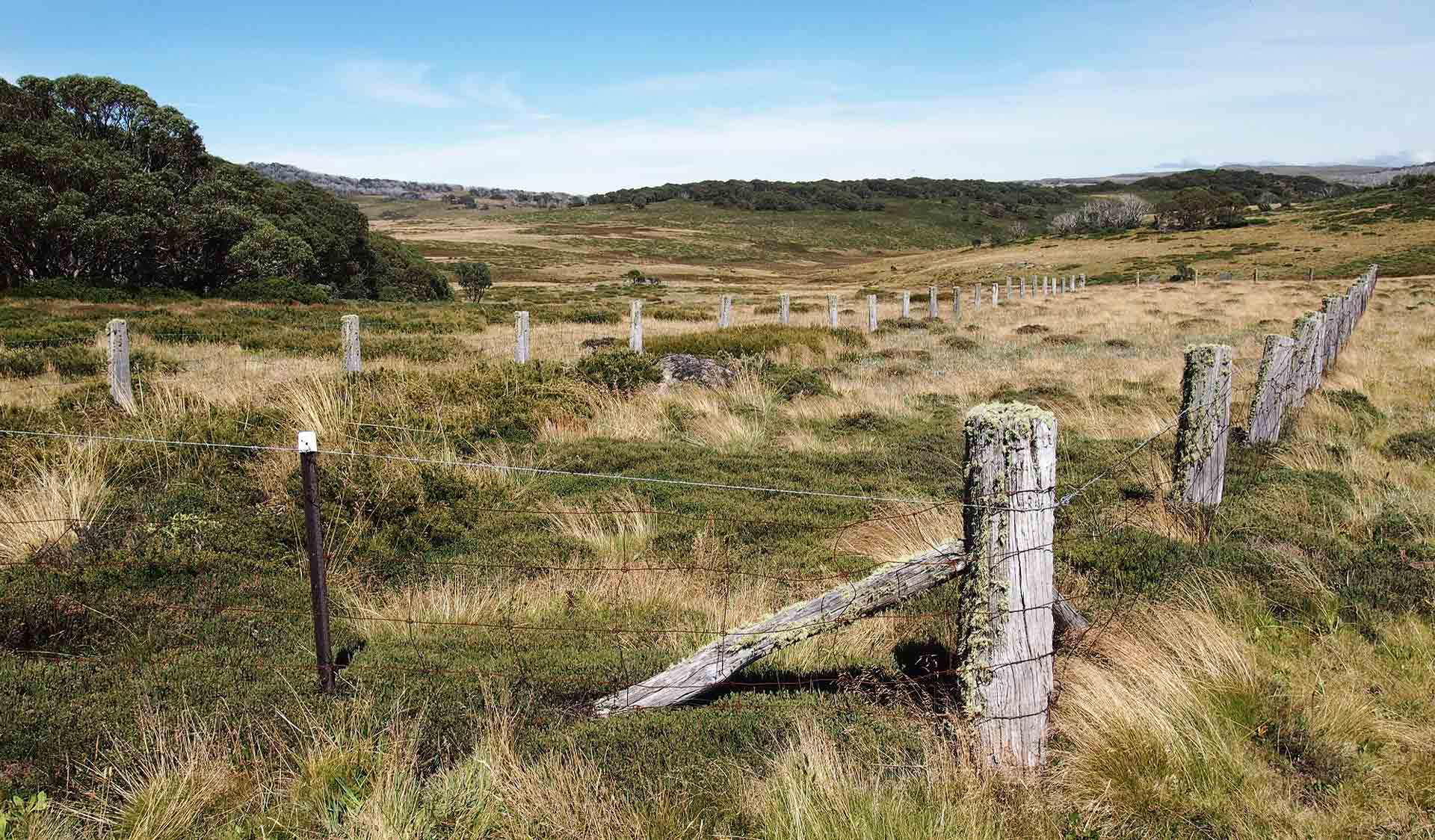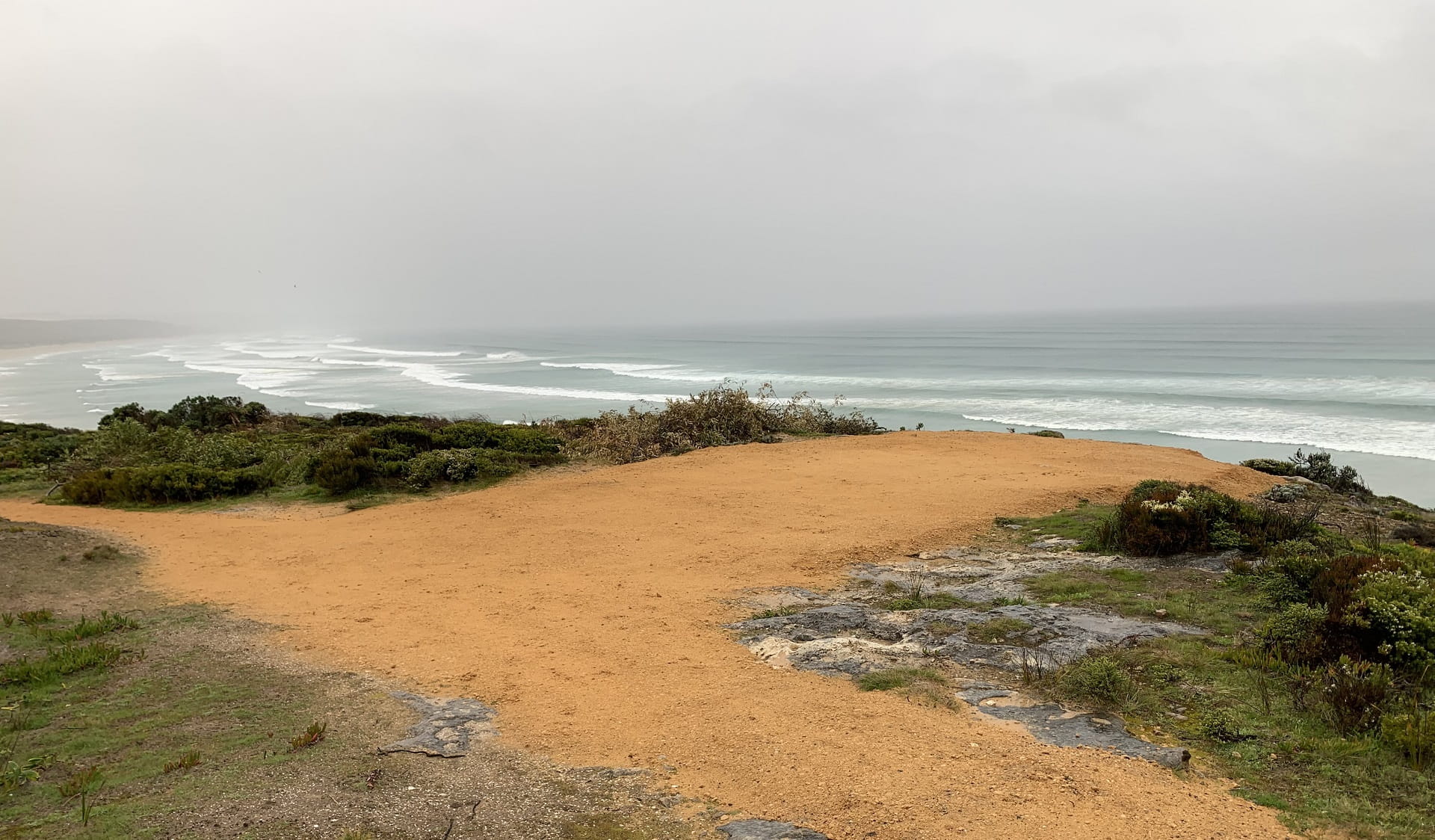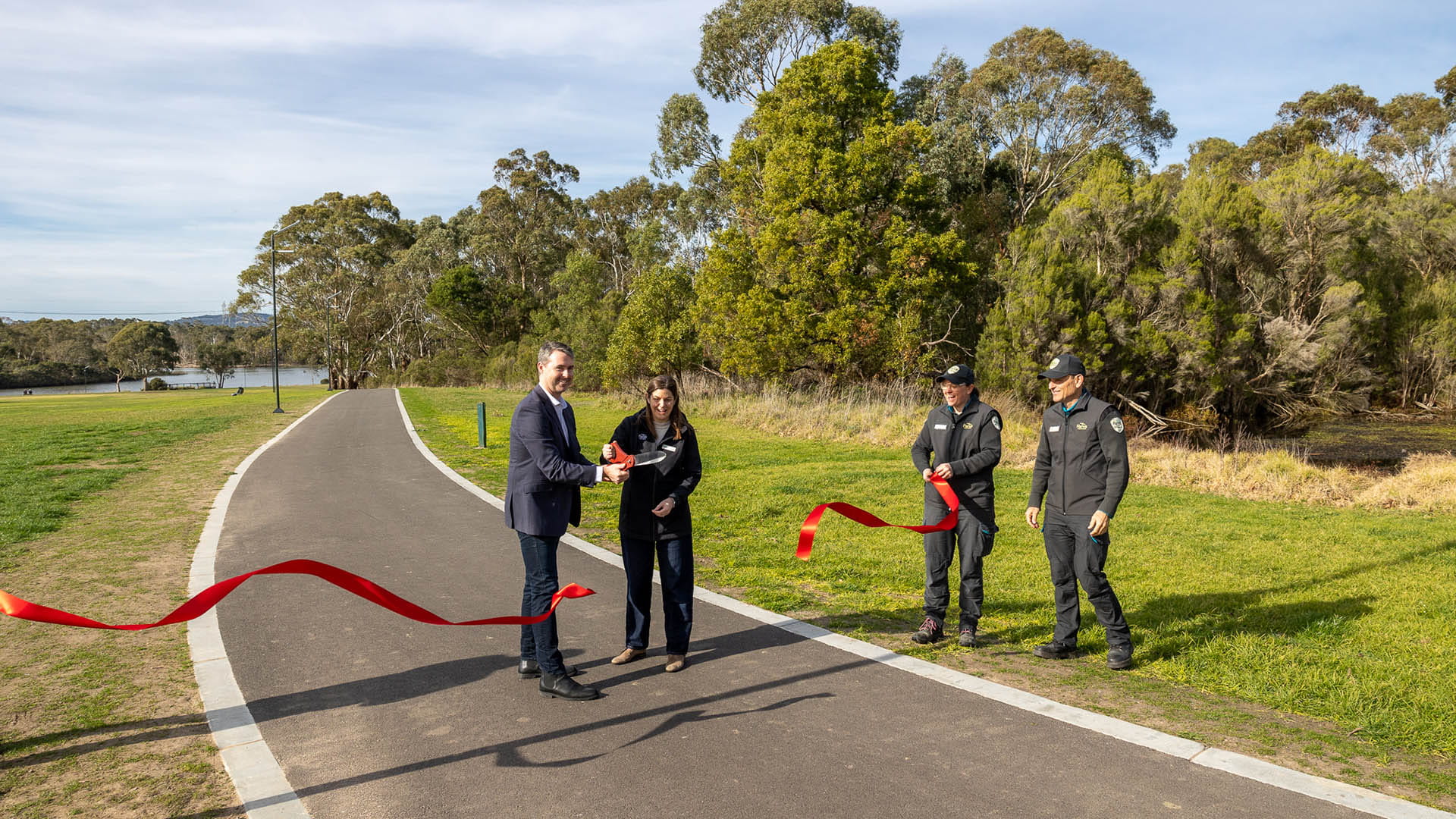How to care for nature in parks
Tuesday 18 October, 2022
As Parks Victoria's Area Chief Ranger Shipwreck Coast and Hinterland, Michael Smith, explains, “Visitors sometimes take actions which they don’t realise can negatively impact the plants and animals in our incredible parks. Your actions can directly impact nature and conservation.”
The survival of our wildlife, plants and natural habitats is critical to our own survival – our health and wellbeing, the air we breathe, the water we drink and the places we go. Here are some quick tips on how you can care for biodiversity when exploring nature.
Picking flowers can impact important habitat
Springtime flowers are beautiful, but please do not pluck them. Picking or cutting flowers can prevent the plant from forming seeds. With over 1300 species of flora listed as at risk in Victoria, it is important we help to support their conservation.
“Picking flowers can be a major issue especially when if species is threatened or endangered. If you damage the plant, you can create a long-lasting negative impact on the species’ chance of survival” explains Area Chief Ranger Michael Smith.
Flowers are vital food sources for many insects and animals across Victoria. By removing flowers, you reduce their food supply, giving creatures and insects less opportunity to pollinate.
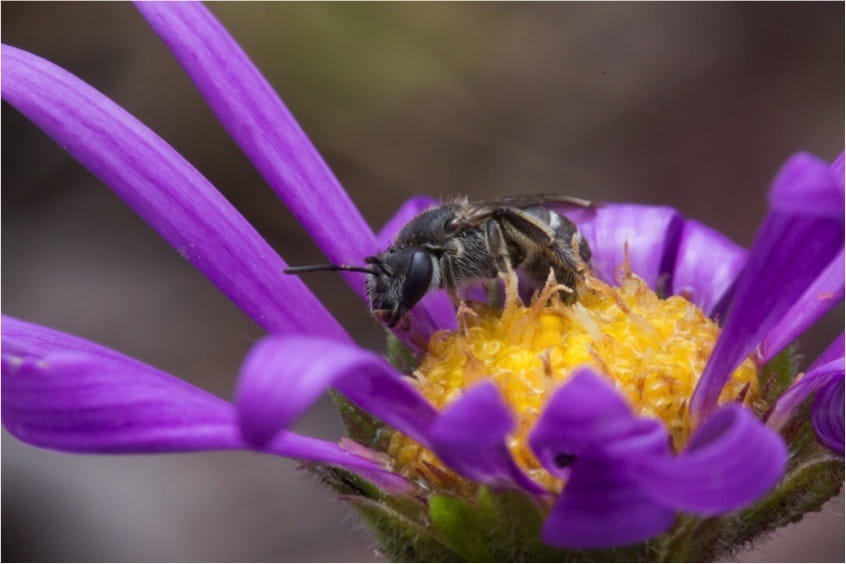
Insects like native bees rely on flowers as an important food source.
Leave logs in parks to protect wildlife
Did you know many animals rely on fallen timber and tree hollows for habitat? Crevices under logs and hollows in trees provide safe places for mammals, reptiles, birds, and invertebrates to live and are the perfect place to protect their young from predators.
Fallen timber and tree hollows also have value far beyond basic shelter, providing food resources and recycling nutrients in the ecosystem as it decays. To animals, people taking firewood is taking their home.
Removing wood and cutting trees in protected areas is illegal. If you see someone removing wood, report it to Parks Victoria on 13 19 63.
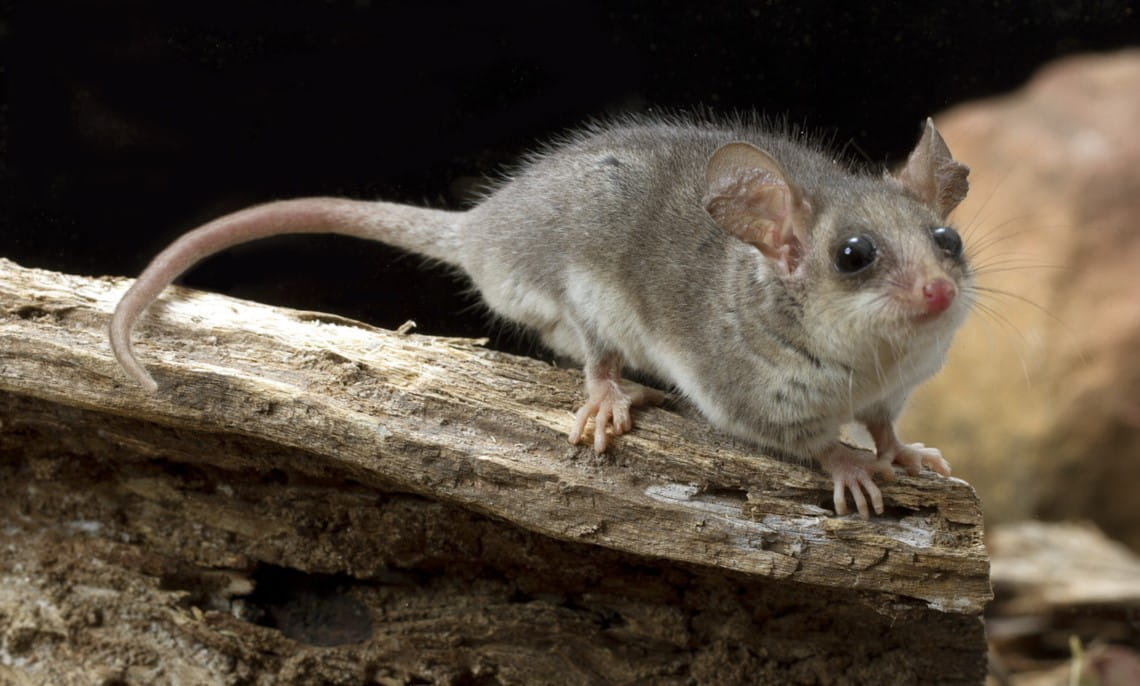
Animals like the Eastern Pygmy Possum rely on fallen logs to live. Credit: Museums Victoria
Take photos on your phone
If you are in nature and notice a plant or animal, take a photo of it. By snapping a photo on your smartphone and uploading it to Parks Victoria’s Citizen Science app, you can help collect important data for our scientists to use when they are planning conservation works.
By recording images, you can help build our knowledge about the species that live in the park. You might even help identify a plant or animal that hasn’t been recorded in that area before!
Learn more about Citizen Science.
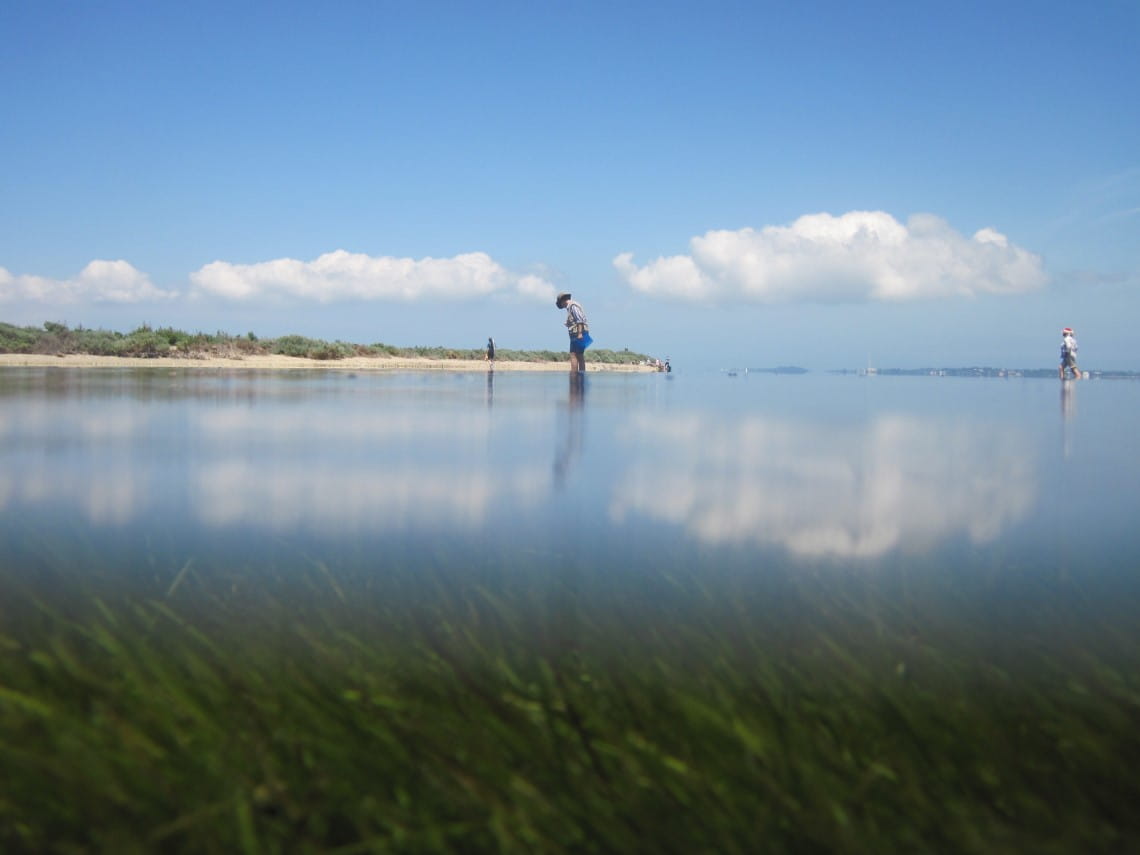
Follow the path
“Following a path is one of the best ways you can care for nature” says Area Chief Ranger, Michael Smith. “Paths are there so you can enjoy your time in nature without disturbing the incredible ecosystem around you.”
When walkers, bikes, and off-road vehicles travel off designated tracks, it can disturb and destroy vegetation resulting in soil degradation and erosion across landscapes.
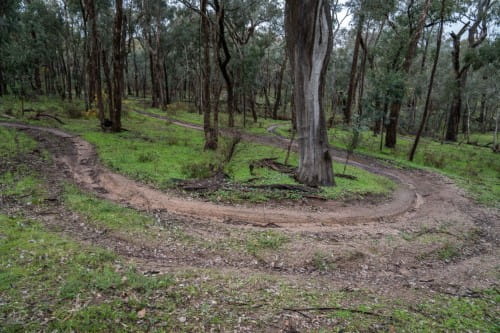
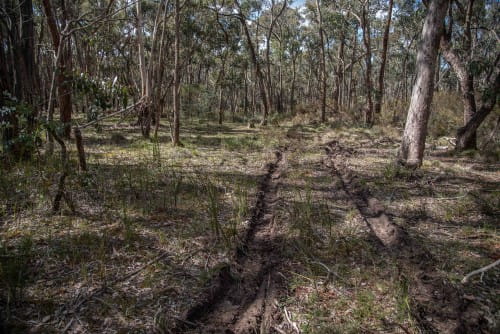
Pictured: Illegal biking (left) and 4WDs (right) can damage important habitat and plants, leading to devastating impacts on our unique biodiversity.
Keep your dog on a leash
Dogs are not allowed in national parks, so leave your four-legged friend at home. Parks Victoria has a range of dog friendly parks, visit Dog Friendly Parks to plan your visit.Your furry friend might be well trained, but off-leash dogs can impact important vulnerable species by disturbing important habitat. Dogs can leave a scent which discourages wildlife away from an area, leaving a lasting impact that may interfere with natural processes such as breeding and nesting. Even when leashed, dogs can frighten and negatively affect prey species like birds and mammals.
“Vulnerable species like the Hooded Plover rely on safe habitat on areas like beach dunes to safely breed. Even when leashed, dogs can risk vital breeding activities essential to a species ongoing survival” explains Michael Smith.
Feeding wildlife can make them sick
You might think you are helping but feeding wildlife can have devastating consequences.
“Wildlife can’t digest food they way we can. Feeding animals food such as processed seeds or bread can result in them becoming very unwell” explains Michael Smith.
Feeding wildlife can also impact an animal’s natural behaviour. They may become aggressive and harass humans for food or lose their ability to forage for natural food sources.
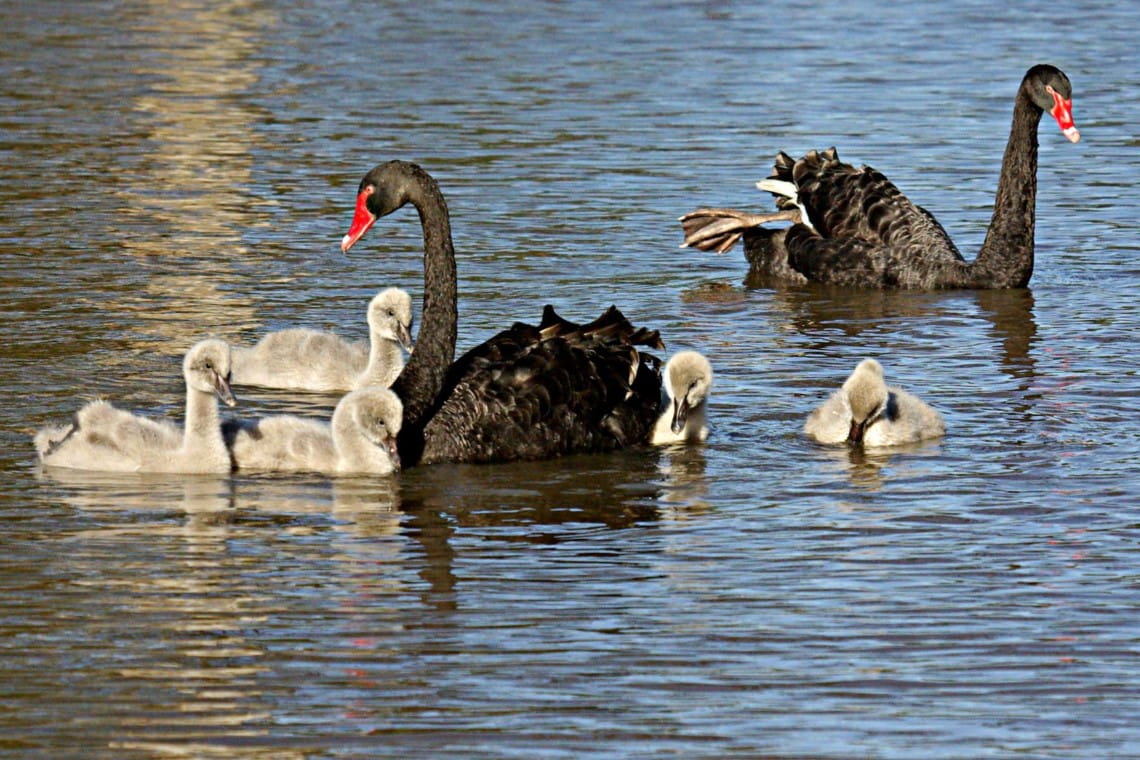
What may be a fun experience for you can be an extremely dangerous one for species like the Black Swans pictured.
Keep clean
Litter can impact critical important habitats and landscapes in nature. Litter can travel or degrade, impacting marine life and waterways. Wherever you are, make sure you carry your rubbish home with you.To level up your impact, consider safely picking up any rubbish you notice when in nature. You might even like to take up the popular trend Plogging. A combination of two words – ‘jogging’ and the Swedish phrase for pick up, ‘plocka upp’ – Plogging is a popular activity where people pick up litter while moving.
Want to take it one step further and care for nature? Consider volunteering at your local park to support biodiversity.


